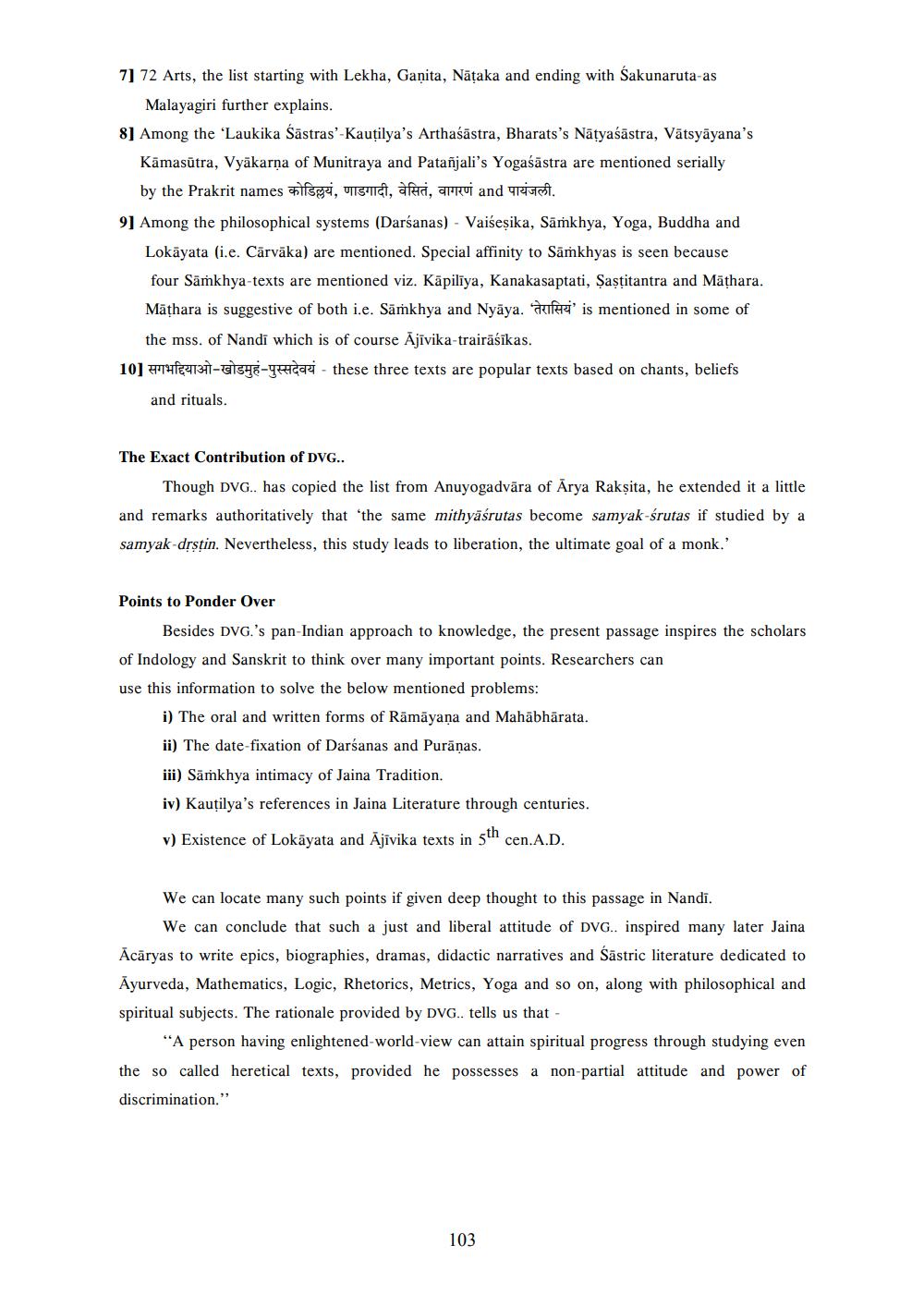________________
7] 72 Arts, the list starting with Lekha, Ganita, Nāțaka and ending with Sakunaruta-as
Malayagiri further explains. 8] Among the 'Laukika Šāstras'-Kautilya's Arthaśāstra, Bharats's Nātyaśāstra, Vātsyāyana's
Kāmasūtra, Vyäkarna of Munitraya and Patañjali's Yogaśāstra are mentioned serially
by the Prakrit names कोडिल्लयं, णाडगादी, वेसितं, वागरणं and पायंजली. 9] Among the philosophical systems (Darsanas) - Vaišeşika, Sāmkhya, Yoga, Buddha and
Lokāyata (i.e. Cārvāka) are mentioned. Special affinity to Samkhyas is seen because
four Samkhya-texts are mentioned viz. Kāpilīya, Kanakasaptati, Şastitantra and Māthara. Māthara is suggestive of both i.e. Sāmkhya and Nyāya. R is mentioned in some of
the mss. of Nandi which is of course Ajīvika-trairāśikas. 10] THE T31-C54E-grica - these three texts are popular texts based on chants, beliefs
and rituals.
The Exact Contribution of DVG..
Though DVG.. has copied the list from Anuyogadvāra of Ārya Raksita, he extended it a little and remarks authoritatively that the same mithyāšrutas become samyak-śrutas if studied by a samyak-drstin. Nevertheless, this study leads to liberation, the ultimate goal of a monk.'
Points to Ponder Over
Besides DVG.'s pan-Indian approach to knowledge, the present passage inspires the scholars of Indology and Sanskrit to think over many important points. Researchers can use this information to solve the below mentioned problems:
i) The oral and written forms of Rāmāyana and Mahabharata. ii) The date fixation of Darsanas and Puranas. iii) Samkhya intimacy of Jaina Tradition. iv) Kautilya's references in Jaina Literature through centuries.
v) Existence of Lokāyata and Ājīvika texts in 5th cen.A.D.
We can locate many such points if given deep thought to this passage in Nandi.
We can conclude that such a just and liberal attitude of DVG.. inspired many later Jaina Acāryas to write epics, biographies, dramas, didactic narratives and Šāstric literature dedicated to Ayurveda, Mathematics, Logic, Rhetorics, Metrics, Yoga and so on, along with philosophical and spiritual subjects. The rationale provided by DVG.. tells us that -
"A person having enlightened-world-view can attain spiritual progress through studying even the so called heretical texts, provided he possesses a non-partial attitude and power of discrimination."
103




